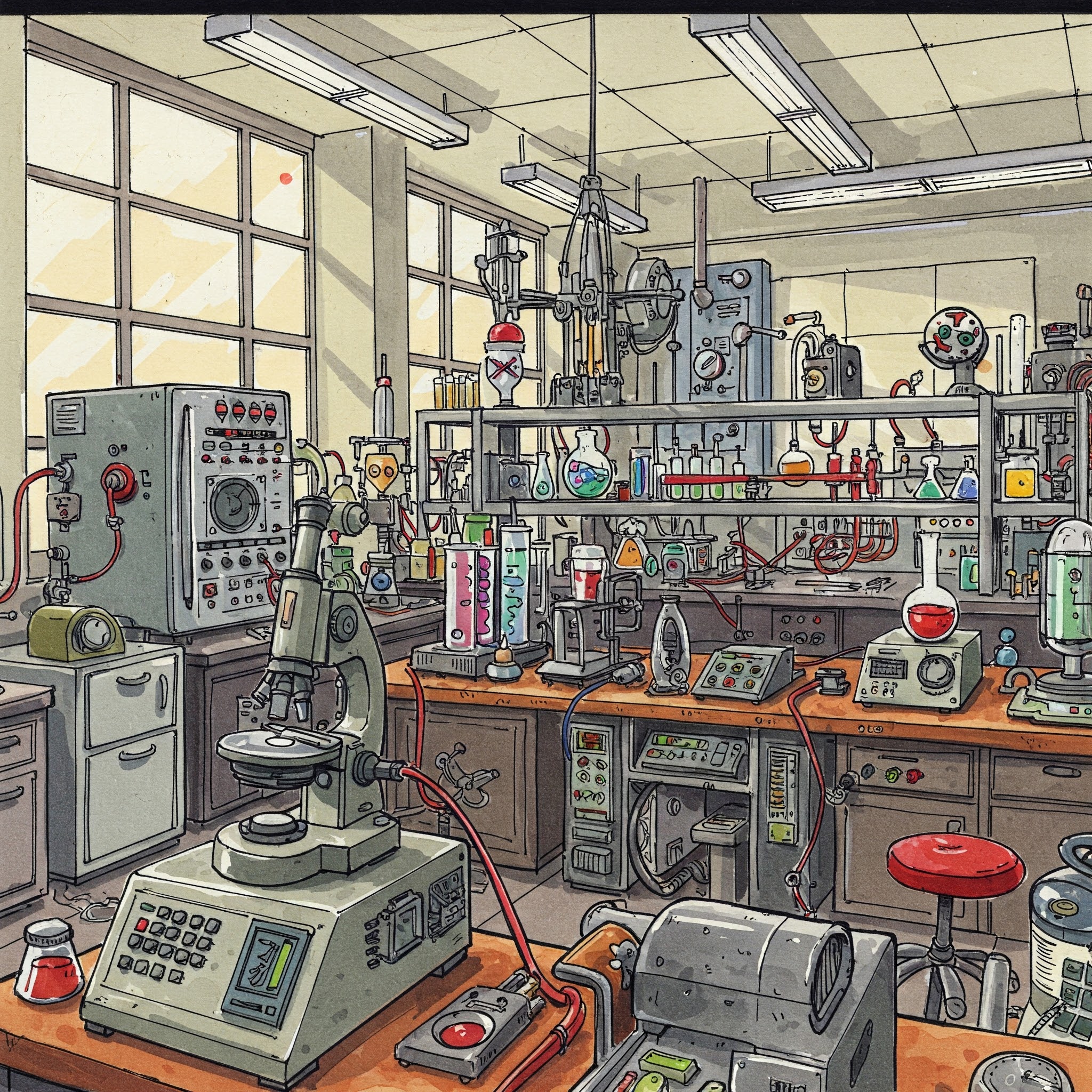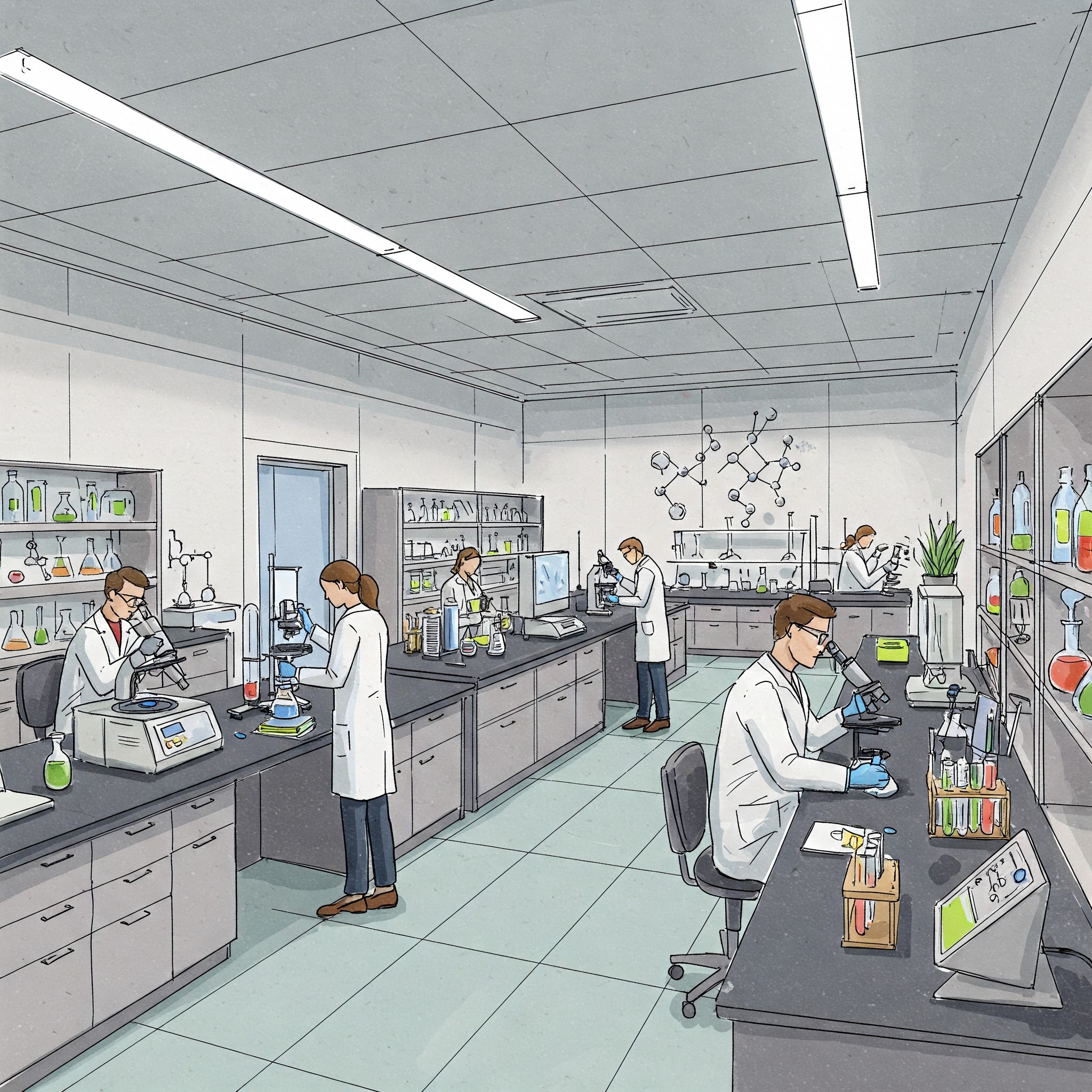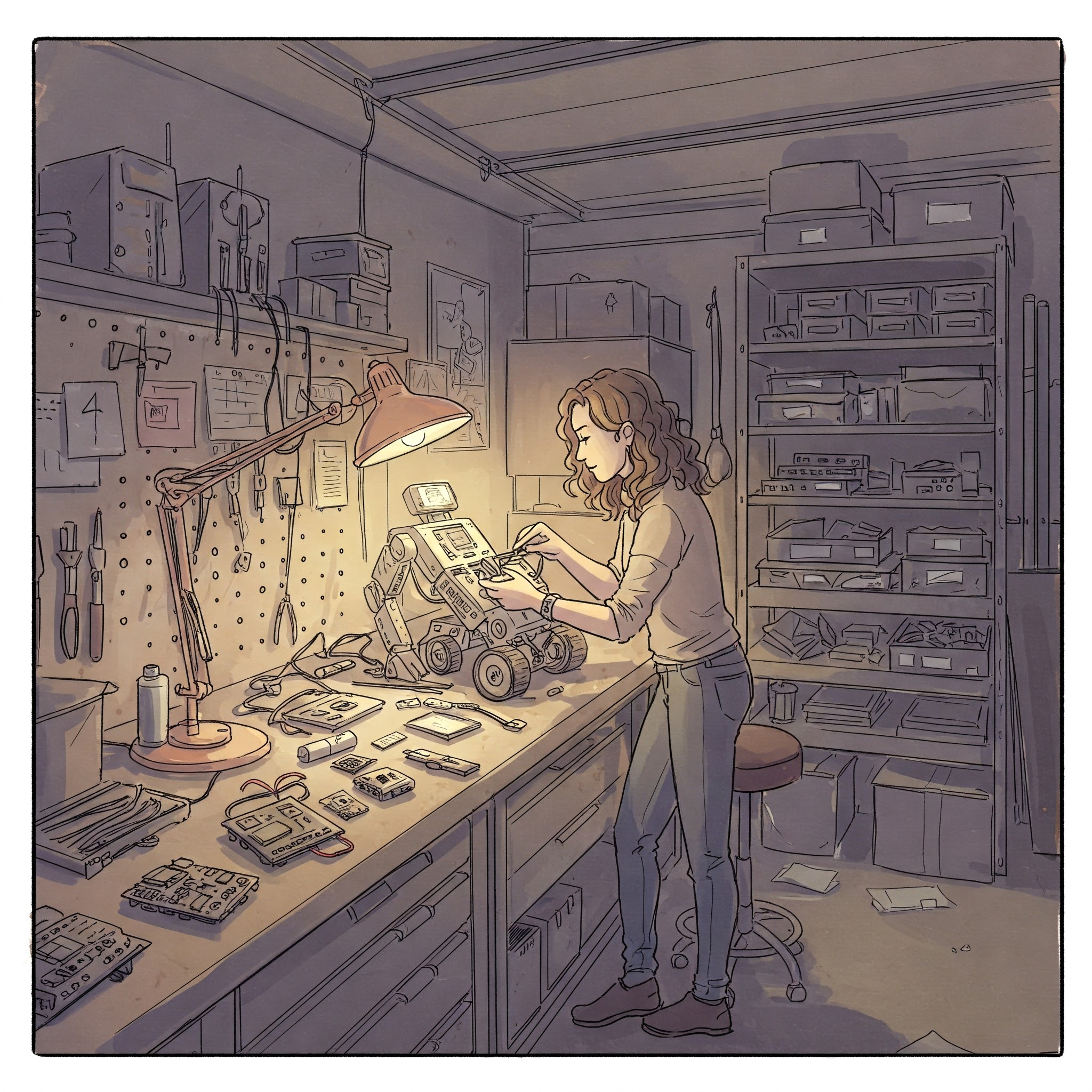Laboratory
Definition
Laboratory is a noun that refers to a room, building, or facility equipped for scientific research, experiments, and testing. It is a controlled environment where experiments and measurements can be performed.
Parts of Speech
- Noun
Pronunciation
American English
- IPA Pronunciation: /ˈlæbrəˌtɔːri/
- Respelling: LAB-ruh-tor-ee
British English
- IPA Pronunciation: /ləˈbɒrətri/ or /ˈlæbərətəri/
- Respelling: luh-BOR-uh-tree or LAB-uh-ruh-tree
Etymology
The word "laboratory" originates from the Medieval Latin "laboratorium," derived from "laborare," meaning "to work." The term entered English in the 17th century and has been associated with scientific research and experimentation since.
Derivatives
- Laboratorian (noun)
- Lab (noun, informal)
- Laboratorial (adjective)
- Laboratory-based (adjective)
- Relaboratory (noun, rare)
Synonyms
- Research facility
- Workshop
- Test center
Antonyms
- Field
- Open space
- None
Usage
The term "laboratory" is widely used in academic, scientific, and industrial contexts. For example, "The experiment was conducted in the chemistry laboratory," or "The laboratory is equipped with the latest technology for genetic research."
Related Terms
- Experiment: A scientific procedure carried out in a laboratory.
- Analysis: The detailed examination of data obtained from a laboratory.
- Microscope: A tool commonly used in laboratories for magnifying small objects.
Detailed Definitions
Noun
- A facility equipped for scientific research: Refers to a controlled environment for conducting experiments and tests.
- Example: "The physics laboratory was filled with advanced equipment."
- A place for manufacturing or technological development: Indicates a space for creating or testing new products or materials.
- Example: "The pharmaceutical company has a cutting-edge laboratory for drug development."
- An informal term for any space used for experiments: Can also refer to small-scale workshops or test spaces.
- Example: "His garage served as a makeshift laboratory for his robotics projects."
laboratory



🇨🇳 Mandarin
- 实验室 (shíyànshì) - Laboratory
- IPA Pronunciation: /ʂʐ̩˥˩ jɛn˨˩˦ ʂʐ̩˨˩˦/
- Respelling in English: "shi-yan-shi"
🇮🇳 Hindi
- प्रयोगशाला (prayogshala) - Laboratory
- IPA Pronunciation: /pɾəjoːgɕaːlaː/
- Respelling in English: "pra-yog-sha-la"
🇪🇸 Spanish
- Laboratorio - Laboratory
- IPA Pronunciation: /laboɾaˈtoɾjo/
- Respelling in English: "la-bo-ra-to-rio"
🇫🇷 French
- Laboratoire - Laboratory
- IPA Pronunciation: /labɔʁatwaʁ/
- Respelling in English: "la-bo-ra-twa"
🇸🇦 Modern Standard Arabic
- مختبر (mukhtabar) - Laboratory
- IPA Pronunciation: /mʊx'tabːar/
- Respelling in English: "mukh-tabar"
🇧🇩 Bengali
- পরীক্ষাগার (parikshagar) - Laboratory
- IPA Pronunciation: /pɔrikʃaɡar/
- Respelling in English: "po-rik-sha-gar"
🇷🇺 Russian
- Лаборатория (Laboratoriya) - Laboratory
- IPA Pronunciation: /ləbərɐˈtorʲɪjə/
- Respelling in English: "la-bo-ra-to-ri-ya"
🇵🇹 Portuguese
- Laboratório - Laboratory
- IPA Pronunciation: /lɐbuɾɐˈtoɾiu/
- Respelling in English: "la-bu-ra-to-rio"
🇮🇩 Indonesian
- Laboratorium - Laboratory
- IPA Pronunciation: /laboˈratɔriʊm/
- Respelling in English: "la-bo-ra-to-ri-um"
🇩🇪 German
- Labor - Laboratory
- IPA Pronunciation: /laːˈboːɐ̯/
- Respelling in English: "la-bor"
🇯🇵 Japanese
- 実験室 (Jikkenshitsu) - Laboratory
- IPA Pronunciation: /d͡ʑikːeɴɕiꜜtsɯ̥/
- Respelling in English: "jik-ken-shi-tsu"
🇻🇳 Vietnamese
- Phòng thí nghiệm - Laboratory
- IPA Pronunciation: /ɸɜwŋ˨˩ˀ˦ thi˧ˀ˦ ŋiɜm˧ˀ˦/
- Respelling in English: "phong thi nghiem"
🇰🇷 Korean
- 실험실 (silheom-sil) - Laboratory
- IPA Pronunciation: /ɕil.hʌm.ɕil/
- Respelling in English: "sil-heom-sil"
🇹🇷 Turkish
- Laboratuvar - Laboratory
- IPA Pronunciation: /laboɾatuvaɾ/
- Respelling in English: "la-bo-ra-tu-var"
🇵🇰 Urdu
- لیبارٹری (laboratory) - Laboratory
- IPA Pronunciation: /lɪbɑːrətriː/
- Respelling in English: "li-ba-ra-tri"





